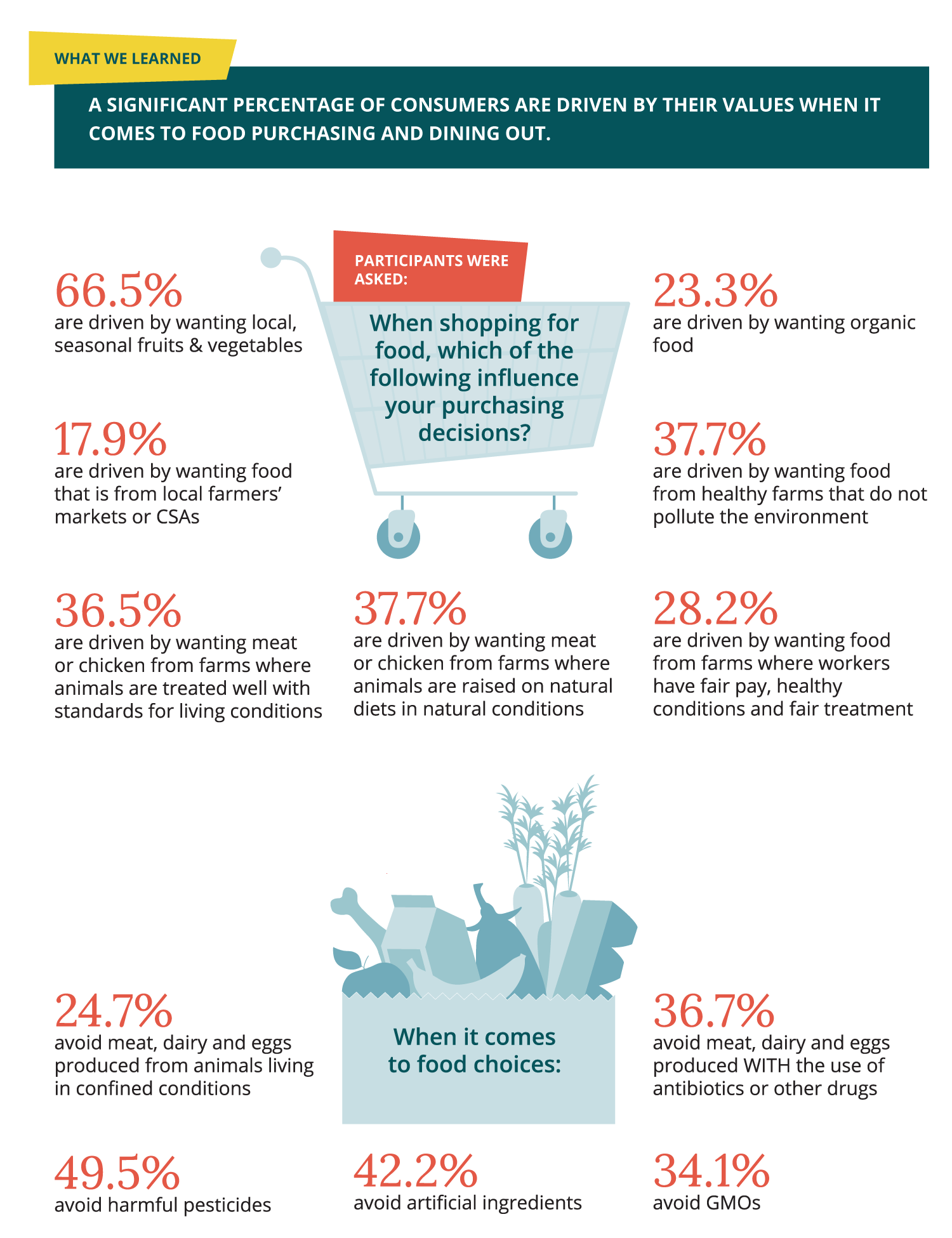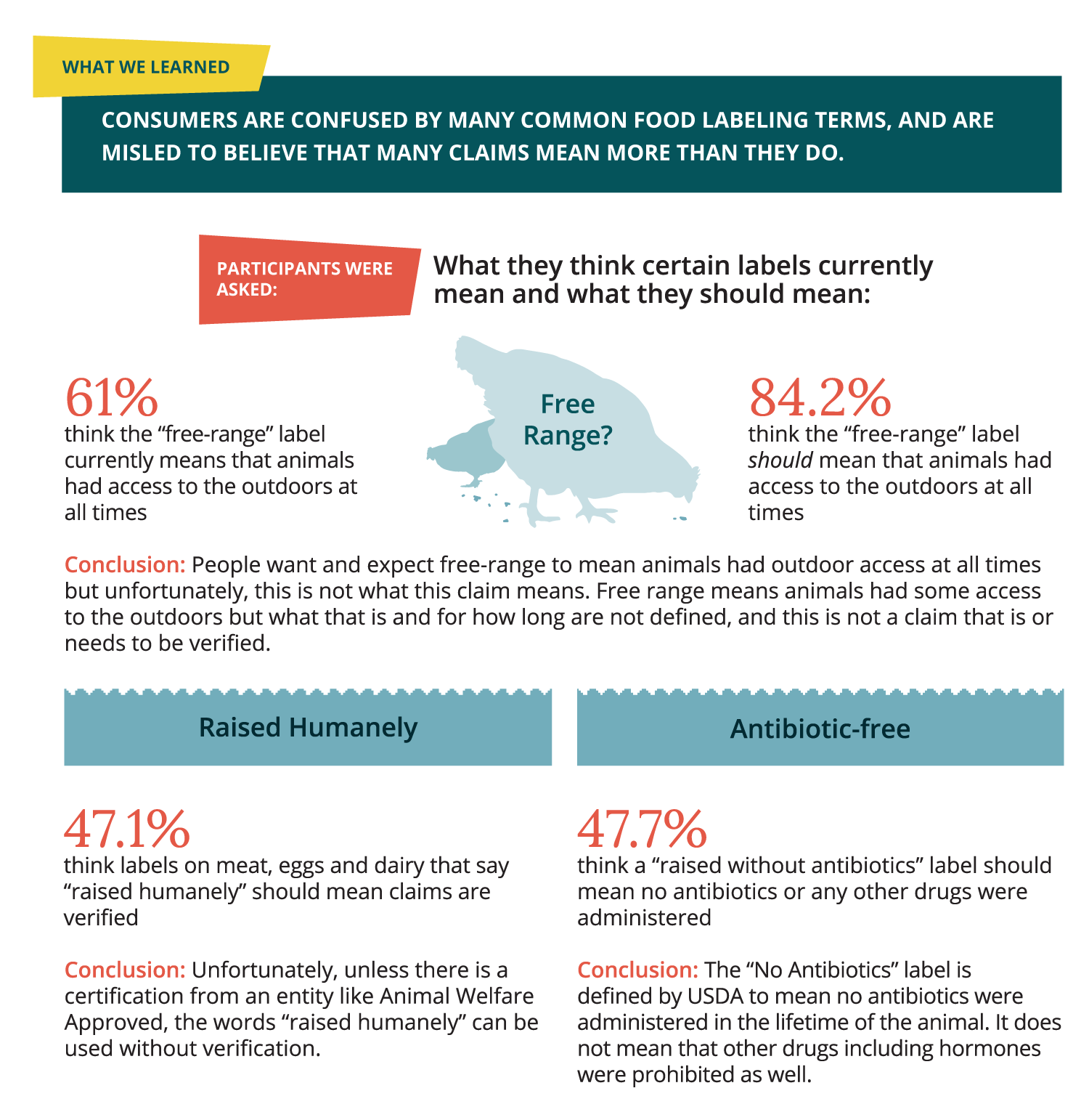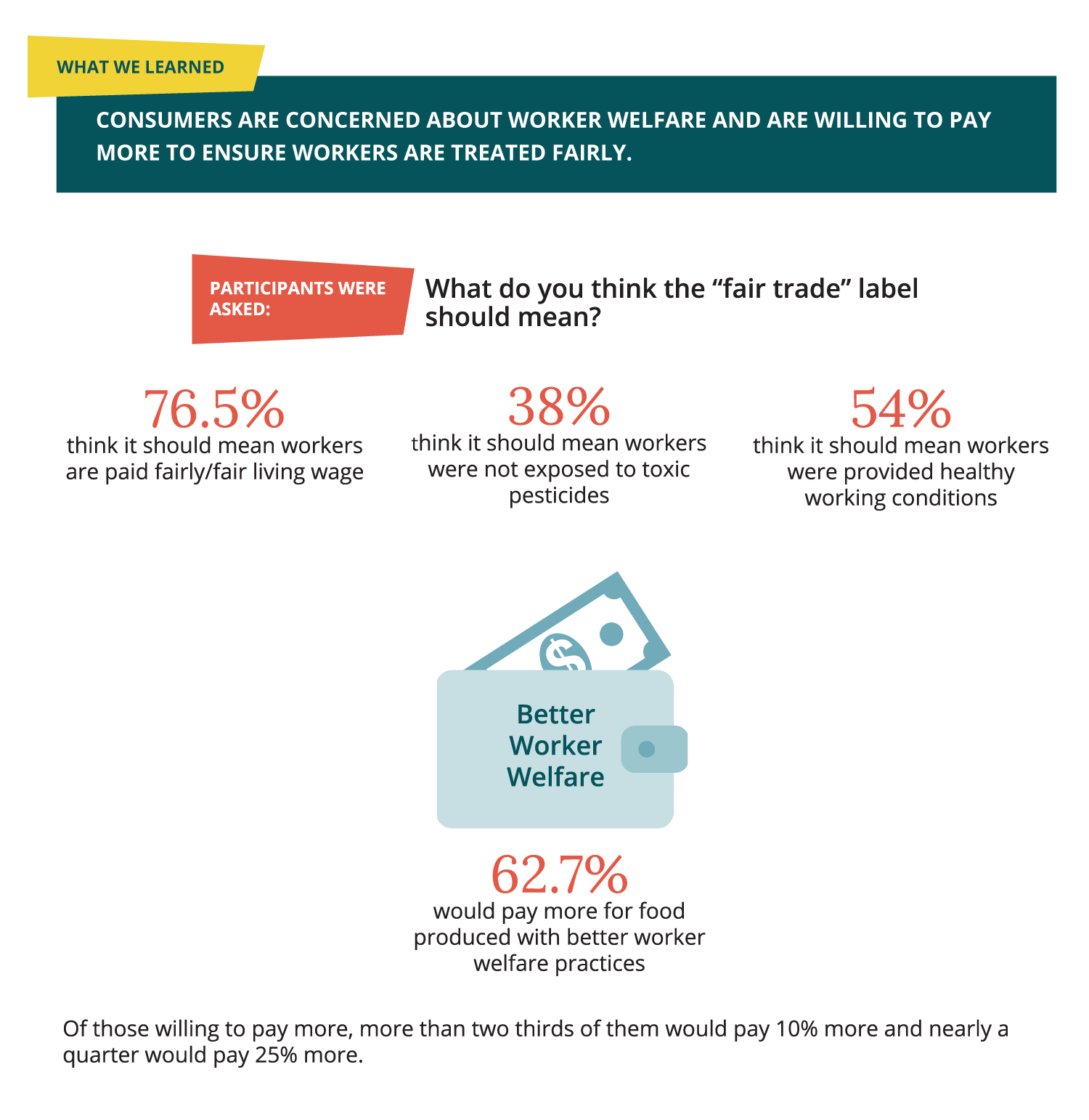Consumer Survey Results
We sought to understand what motivates people when they head out to the supermarket or restaurant in order to learn what matters to them most when it comes to food, and what information they need to help connect them to the food that meets their values.
So we engaged GfK services to conduct a nationwide survey of 1,000 people who are household food purchasers (general population of primary grocery shoppers) to understand what drives their purchasing decisions.
To sample the population, GfK sampled households from its KnowledgePanel, a probability-based web panel designed to be representative of the United States (for a more complete methodology report, contact us at [email protected])
We learned that people have values connected to their food, and they are driven by those values when purchasing food to cook at home, as well as when dining out.
They are concerned about the long-term risks from the food they eat and are looking for food that is local and seasonal, that was grown or raised with fewer drugs and pesticides and produced with better animal and worker welfare.
As a result, people are looking for labels that can connect them to food that meets those values. They want and need labels that have meaning and that deliver on their promises. Given the preponderance of unverified claims and labels, there’s a lot of confusion. The good news is that there are labels out there that are meaningful and can help people find food that aligns with their values — labels that tell them when food was produced with fewer drugs and fewer pesticides, and when it was produced with better animal and worker welfare.



